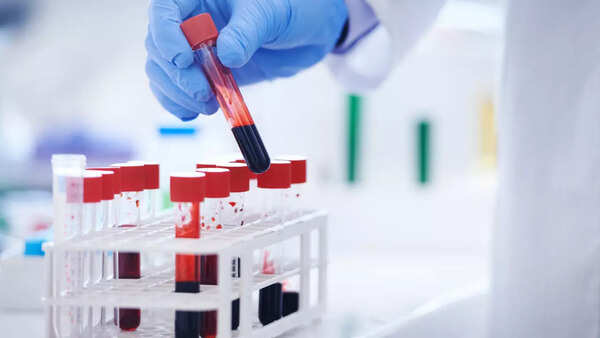Cancer is the second leading cause of death worldwide. It accounts for an estimated 9.6 million deaths, or 1 in 6 deaths, in 2018, according to the World Health Organization (WHO). The numbers are alarming; however, early detection can significantly increase the treatment outcomes and survival. Blood tests are powerful tools to identify cancer in men and women, even before symptoms appear. These tests analyze biomarkers, such as proteins, circulating tumor cells, or DNA fragments, in the blood to flag potential malignancies. Here are blood tests that show promise in detecting cancer, in both men and women. Complete blood count (CBC)The CBC is used to detect certain types of blood or immune system cancers, such as leukemia and lymphoma. This test measures the number of red blood cells, white blood cells, and platelets in the blood. It also measures the amount of hemoglobin, how much of your blood is made up of red blood cells, the size of your red blood cells, and how much hemoglobin each red blood cell contains.Circulating tumour cell tests (CTC)

The circulating tumor cell (CTC) test is a type of liquid biopsy that can detect cancer. This test can identify pieces of tumours that break off and circulate in your bloodstream. This test is often done in people with metastatic breast, prostate or colon cancers. A high number of CTCs in the blood signals unfavourable results.Blood chemistry testA blood chemistry test looks at the levels of certain substances released into the blood by the organs and tissues. These substances include metabolites, electrolytes, fats, sugars, and proteins, including enzymes. This test can also provide information about the functioning of your organs, including the kidneys and liver.Immunophenotyping

Immunophenotyping is a test that can find abnormalities in the cells. The test is done from a sample of blood or bone marrow, to find out if malignant lymphocytes (cancer) began from the B lymphocytes or the T lymphocytes. The process identifies cells based on the types of antigens or markers on the surface of the cell. This test is used to diagnose specific types of leukemia and lymphoma by comparing the cancer cells to normal cells of the immune system.Liquid biopsy A liquid biopsy is a type of blood test that can detect signs of cancerous tumors, including tumour cells and cancer cell DNA. The test is done by taking a sample of blood and looking for cancer cells or pieces of DNA from tumour cells that are sometimes released into the blood. This test can help find cancer in the early stages.Blood protein tests

Blood protein test is used to find abnormal protein levels in the blood. If the protein levels are high in the test, it could indicate certain types of cancer, especially blood cancers like leukemia, lymphoma, and multiple myeloma. However, further tests might be required to confirm the diagnosis. Tumour marker blood testsTumour marker blood tests can detect substances that are produced by cancer cells or other cells of the body in response to cancer. High levels of these chemicals in the blood can be a sign of cancer. This test can help diagnose cancer, treatment, and also measure treatment outcomes.
NB: This information is based on internet research and is intended for general knowledge only. It should not be considered a substitute for professional medical advice.






